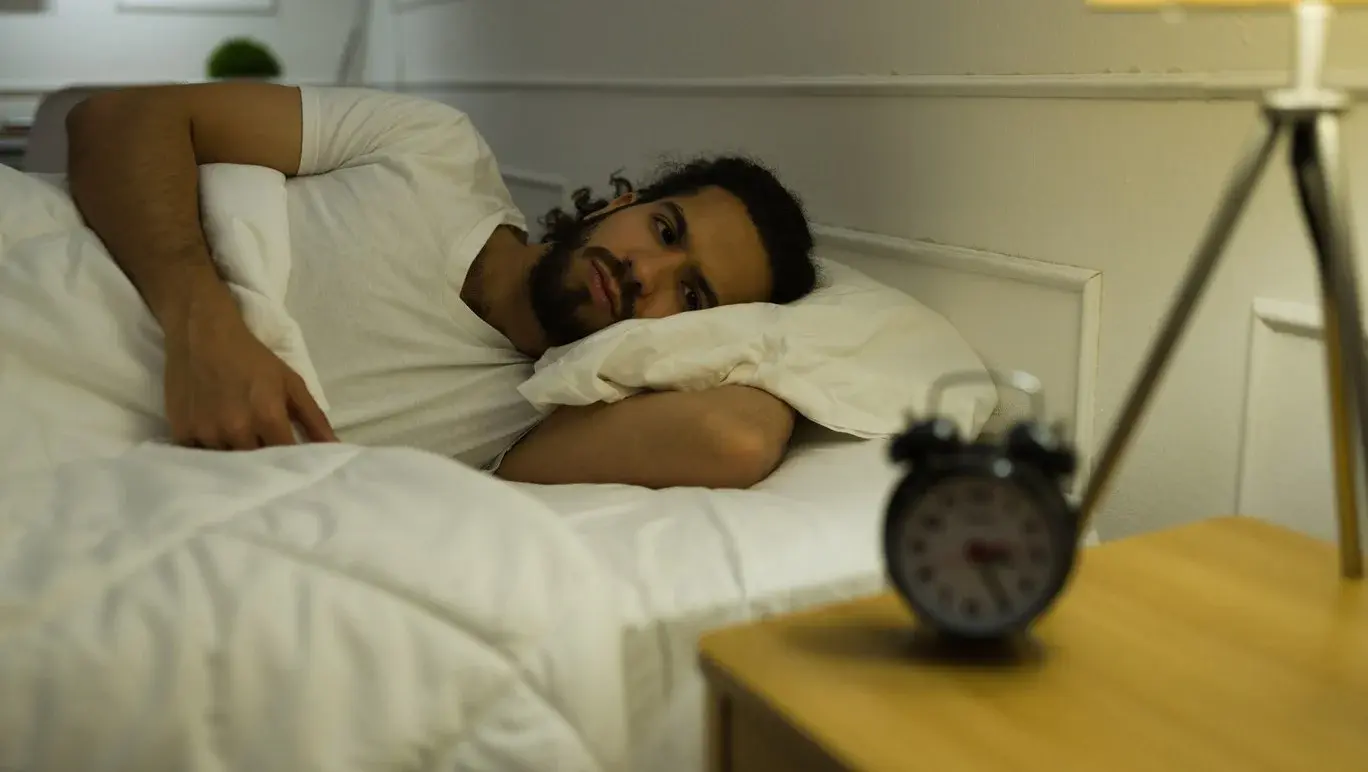Waking up during the night? Here’s why and what to do

Getting a good night's sleep can be a challenge for many of us—around 50% of Australians aren't satisfied with our sleep and fall short of the recommendations. A big reason? Technology. From globalised work schedules to endless entertainment and late-night social media scrolling (often from the comfort of our own beds), it’s no surprise that these factors can make it harder to get the quality sleep we need.
If you find yourself struggling to stay asleep or dozing off only to wake up repeatedly, there may be more at play. Let’s break it down and explore what could be causing these disruptions, and how you can get back to sleeping soundly.
Why do you wake up in the middle of the night?
First things first: It is a myth that we’re meant to ‘sleep through the night’ without waking. The way our sleep patterns evolve through the night involves many different stages of light and deep sleep and scatterings of ‘wakefulness’. This means we all transition into stages of wakefulness several times throughout these sleeping periods. Mostly it’s a typical part of sleep, but if someone is waking regularly and not able to return to sleep then it might be time to dig a little deeper.
So, what could be causing regular wake-ups?
- Circadian rhythm disruption: Your body’s internal clock could be disrupted or misaligned.
- Poor sleep hygiene: Little habits—like staring at your phone before bed or drinking too much caffeine—could be working against you.
- Pain: If your body’s uncomfortable, it’s hard to stay asleep.
- Stress or worry: Our minds may race at night, and that can mess with rest.
- Bladder needs: Sometimes, your body just has to go.
- Temperature: Is it too hot or too cold? Finding that perfect temperature is key.
- Partner disturbance: Such as snoring or restless movements.
- Pets or kids: Whether it’s a restless pet or a child climbing into bed, their movements and noises can make it harder to stay asleep.
What should you do if you wake up?
If you find yourself awake in the middle of the night, try not to panic. Resist the urge to check the time or stress about being awake. Instead, close your eyes, get back into your preferred sleeping position, and allow the wakefulness to pass without emotional reaction. More often than not, you’ll naturally drift off again. Accepting that brief wakings in the night is a normal aspect of sleep, and also resisting looking at the time, can go a long way!
If it feels like you’ve been lying awake for more than what feels like 20 minutes (without checking the clock), try getting out of bed—especially if frustration is creeping in. Move to another room and do a quiet, relaxing activity in dim light or darkness like reading. When you start to feel sleepy again, head back to bed and try again. This technique is known as the “20 minute rule”.
What to avoid?
Avoid being concerned about being awake. Don’t panic! It’s important in the first instance to not catastrophise a brief waking at night.
When to seek professional help
If you are experiencing ongoing sleep disturbance that is affecting your quality of life, it’s time to talk to a healthcare professional to discuss treatment options. They can help you identify if there is an underlying sleep disorder, health condition, or mental health issues that might be causing you to wake up and stay awake during the night. Don’t wait, seeking help can make all the difference.
The bottom line
Waking up during the night can happen for many reasons, and brief waking's can be a normal part of sleep. If staying awake becomes a problem, simple lifestyle changes like sticking to a consistent bedtime, cutting back on screen time before bed, and reducing caffeine in the evening can help. With a few adjustments, you can improve your sleep and get back to feeling rested.
Related:
- What happens when you don’t sleep?
- Why is sleep important and what are the benefits?
- Struggling with sleep? 10 tips to fix your sleep schedule
Reviewed by Healthylife Advisory Board March 2025
This article is for informational purposes only and does not provide medical advice, diagnosis, or treatment. Any information published on this website or by this brand is not intended as a substitute for medical advice. If you have any concerns or questions about your health you should consult with a health professional.
